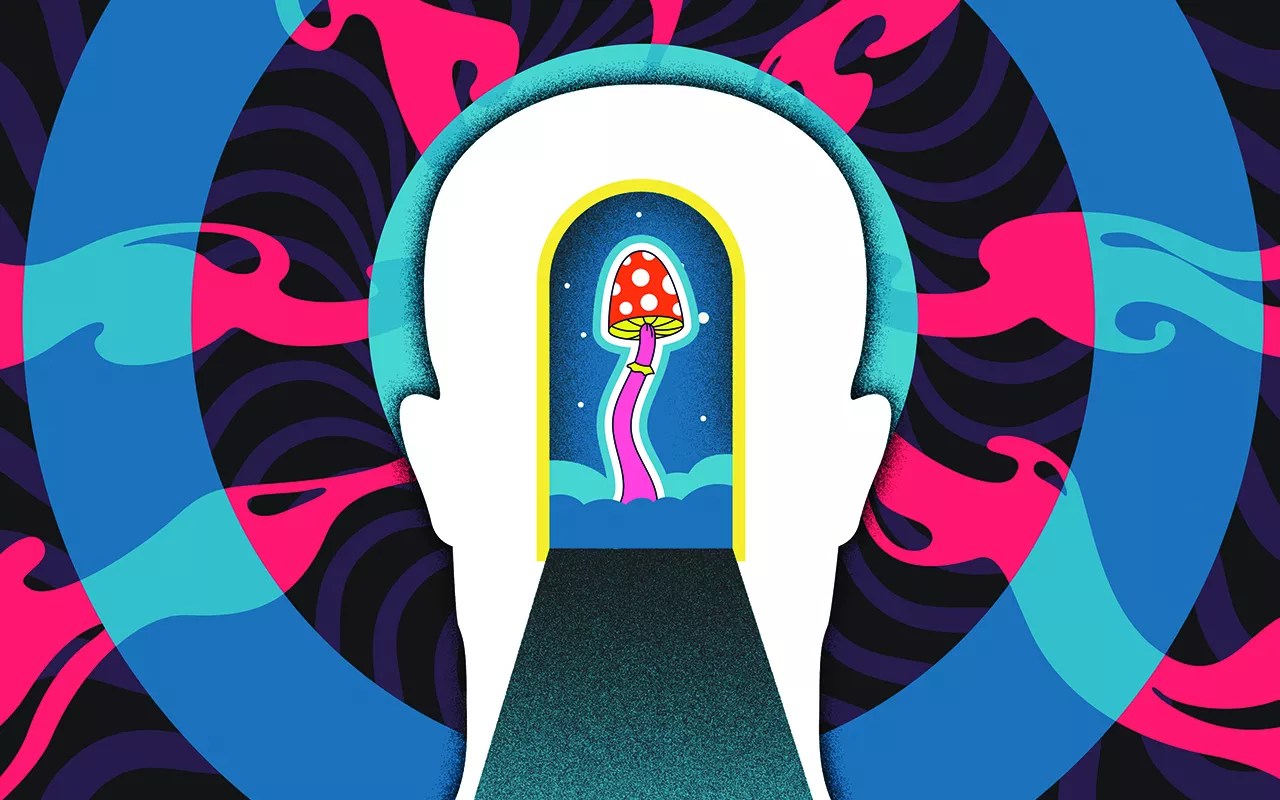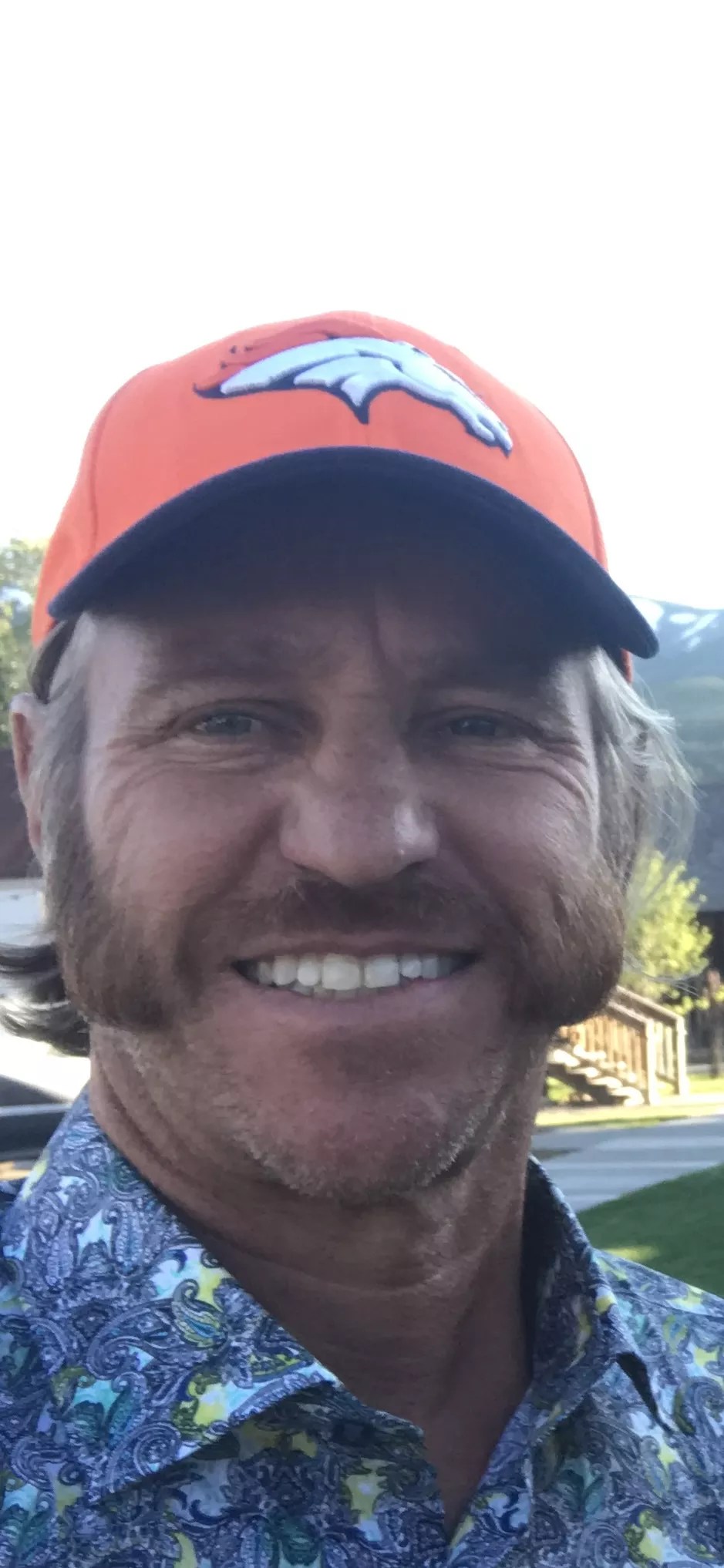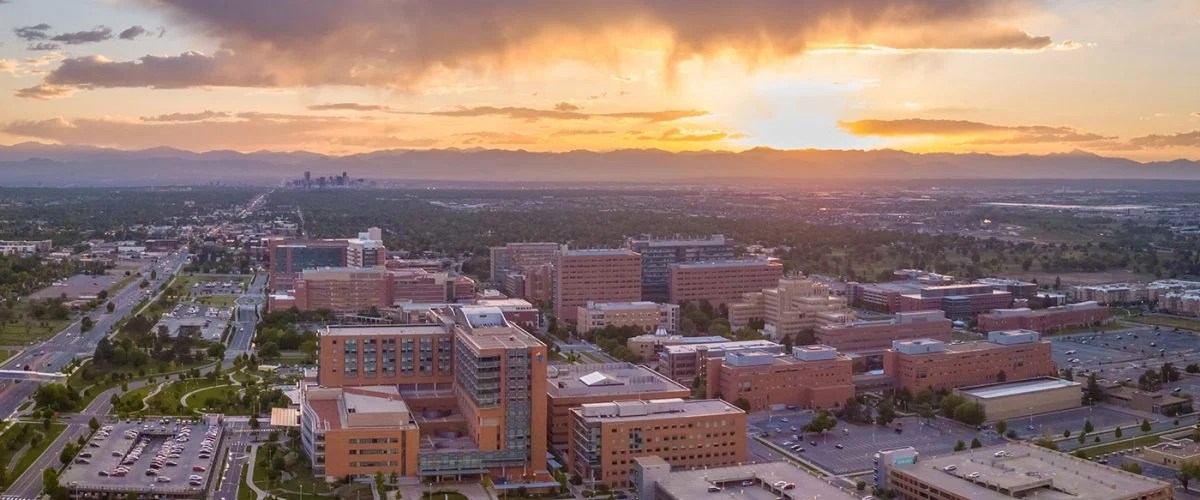
Getty Images

Audio By Carbonatix
James Welch has a passion for concrete. He’s a sculptor, an artist at heart, but working with metal has its downside.
“The thing I didn’t like about the metal was I’d be blowing my nose at night, and it was just black,” Welch says via Zoom from his home in Steamboat Springs. “And I just thought, from a longevity standpoint, this doesn’t make sense.”
Welch turned to working with concrete, and has owned his own residential and commercial concrete company for a couple decades now.
“So the consequence of concrete work is back pain,” he says. “But I’ve always kind of lived with back pain.”
Welch has undergone acupuncture for around twenty years. He also practiced hot yoga and used a chiropractor. He saw his doctor annually, was screened for prostate and colon cancer, and by all indications two years ago, he was a healthy, middle-aged man with work-related back pain.
But the pain near his spine was getting worse. He saw a physical therapist, went back to the chiropractor, got massages weekly, to no avail.
“I tried to chiropractor it out, I tried to acupuncture it out, and I finally said, ‘Fuck it, I’m going to see the doc,'” he says.
An X-ray of his spine revealed nothing – a surprise to Welch and his doctor. “I’m not happy about [the clean X-ray], because that means it’s not the answer,” he recalls the doctor saying.
The next step was an MRI. The tech performing the exam said he saw something in Welch’s bones and needed a better picture, so he injected contrast to highlight the findings.
The Disease
“Like, three hours later, I got a call from my primary health care provider. And, thank God, I was at the dog park with my two dogs, and she says, ‘I’m really sorry to tell you this, but you have cancer in your bones. You have cancer in your spine,” Welch remembers.
“And I thought, ‘Oh, my gosh. I’m fucked.'”
The MRI was followed by a PET scan to reveal the extent of the cancer. After seeing around fifteen spots identified in his body, Welch couldn’t read the scan report anymore.
“It’s in my fucking everywhere. It’s in two or three bones in the lower spine. It’s in the paraspinal muscle. It’s in the liver. It’s in the right lung. It’s in the humerus. It’s in the hips. It’s in three of the right ribs on the lower half of the body,” he recalls.
Doctors traced the cancer to his lung and then sequenced the cancer’s genome, and Welch began taking a medication that costs nearly $18,000 a month; thankfully, he says, he had good insurance.
Welch asked his oncologist how long he had if he didn’t take the medication. A few months, was the answer. On the medication, the average lifespan for a person presenting with his symptoms was three years.

James Welch thinks he’s lucky to have the life he does.
Courtesy James Welch
“I’m thinking, ‘Oh my god, three fucking years?'” Welch says. “I’m gonna do whatever I can, look anywhere that I can, try anything that I can, within reason, to live longer than that.”
The diagnosis was two years ago come this June. Welch began radiation treatment along with his medication that summer, and at Shaw Cancer Center in Edwards, he could add acupuncture, massage, sound bath therapy, and yoga to his palliative treatment.
But the mental toll the cancer has taken on Welch needs to be addressed, too.
He started seeing a therapist for anxiety at the Yampa Valley Medical Center in Steamboat Springs. After a few conversations, the therapist told him about a study funded by the National Cancer Institute happening at the University of Colorado Anschutz Medical Campus in Denver in partnership with New York University. Over the course of study, researchers hope to learn more about psilocybin therapy in palliative care for stage-three and stage-four cancer patients, the most advanced levels of the disease.
Concurrently, some individuals dealing with end-of-life scenarios have turned to Colorado’s mushroom gifting protocol and psychedelic death doulas under the 2022 Natural Medicine Act. But the clinical trials were intriguing to Welch.
“I have some experience with hallucinogens, and I deal with anxiety,” Welch says. “I don’t think any of us know exactly what happens when we die. I just don’t think we know that. Since I know I’m going to die, and it may be sooner than I thought, I’m now spending a little more time thinking about dying and death, and also the potentially shitty journey that I’m going to take between here and there. They give you stuff that’s pretty hard on your body and starts killing cells.”
Welch applied to be part of the trial in October 2023, and was accepted. Although the study isn’t complete yet, Welch says he’s already felt the impact. His psilocybin dose, a the trip that changed his life, happened in April of last year.
“I did the trial and I’m so glad I did. It changed my mental paradigm of life,” he says. “It’s like I got hit with a million volts.”
The Trip
Welch wasn’t a psychedelic virgin, so he knew the potentially anxiety-inducing effects a mushroom trip could have. “When we went to a [Grateful] Dead show at Red Rocks, I mean, I want to make it home, so I’ve got to pay attention to where I am,” he admits.
But in CU’s study, there would be a medical professional checking his blood pressure and other vitals every half-hour, and he would be supervised. The psilocybin he took was synthetically derived, and not from the mushrooms Welch was familiar with, because of federal drug laws.
“They’re taking care of all my health needs, so I didn’t even give one thought to that,” Welch says. “I didn’t recognize that going in, but that’s something that came to me later that was a freedom I didn’t have [on other trips].”
The CU trial was blinded and the placebo was niacin, which induces a burning sensation on the skin of some people, and is notoriously ineffective as a blind compared to hallucinogenic drugs.
Welch knew immediately he had received the psilocybin.
There were two therapists with him. He wore blinders and headphones that piped in a soundtrack curated by the researchers. Welch didn’t expect such an environment.

University of Colorado Anschutz Medical Center
CU Anschutz
“I’ve got this yoga pose that I’m going to do, and I’ve got my own playlist, and they’re like, ‘Yeah, no. That ain’t going to happen,'” he recalls.
Unlike eating shrooms at a concert, the experience was entirely inward. Welch says the researchers’ playlist was integral to the journey he set out on that day.
“Turning in was unbelievably different than being out in the world and having all this external stimulation. There was none of that. Zero. One of the first things I realized was, I am awareness, I’m not a body. I didn’t have a body during this journey, I was just awareness. And honestly, I felt like I was at home,” he recalls. “I’d come to the conclusion that this body, not only is it not me, but it’s not really my home – it’s transient, it’s temporary, it’s just mine to use and take care of.”
According to Welch, he felt a procession of beings alongside him moving towards something. There was no communication, just geometric patterns changing, propagating, cascading all at the same time, in a complexity Welch had never witnessed before.
Welch wasn’t agnostic or an atheist going into the experience.
“I began to recognize that there was a much greater being than me,” the longtime Christian details. “It was like if the sun came right up to you within the distance of your screen – my entire awareness was filled with this unbelievably bright light and a power and knowledge that was so intimidating and overpowering. It just blew me away, and even though I didn’t have a body, I had to turn my awareness away because it was so utterly overwhelming. I recognized that as the Almighty One.”
The supreme being he found gave him the grace of distance eventually, Welch says, like it knew he’d had enough. He was filled with gratitude, and a realization he was but a thread in a tapestry, a brushstroke in a Monet painting, a note in a Mozart symphony.
“I never conceived of anything like it,” he says. “I’m here now, and I have no fear about what happens when I die. I don’t have anxiety about being dead. I have anxiety about the journey between here and there, because of what a lot of people experience when they have cancer.”
In the dosed experience, Welch saw his prior day-to-day life in shades of gray. He says he’s often bothered by the selfish ways of so many humans on this earth, from people who throw cigarettes out of a car window to genocide.
“I’m pretty sensitive about life,” says Welch, who calls himself “lucky” to have the life he does.
“And so now I’m much more attuned to being gracious and being thankful,” Welch adds. “When I get up in the morning, I’m able to say, ‘Hey, today’s a journey. What cool thing is going to happen today?'”
The study at CU Anschutz is ongoing, with results and analysis likely over a year and a half away. Stage-three and stage-four cancer patients are still able to apply to be part of the study for the next year or so, according to Dr. Stacy Fischer, one of the doctors overseeing the clinical trials.
“One important point on the research we’re doing is that it’s not only the drug, but the drug in conjunction with psychotherapy, so it’s sort of structured and manualized with an evidence base, as well. People do experience very profound events, but when combined with psychotherapy, there may be really lasting benefits against anxiety, addiction, depression and other struggles,” Fischer told Westword in a 2023 interview.
For at least one person, the result is clear. According to Welch, the CU psilocybin trial fueled a rebirth of his spiritual gratitude:
“I believe we are all a divine, unique vibration of energy, and we can change that frequency using various tools. Like acupuncture, meditation, yoga, breath work, sound baths, prayer, faith, Ayurvedic medicine and psilocybin. I used the trial to further that fundamental change in my being.”